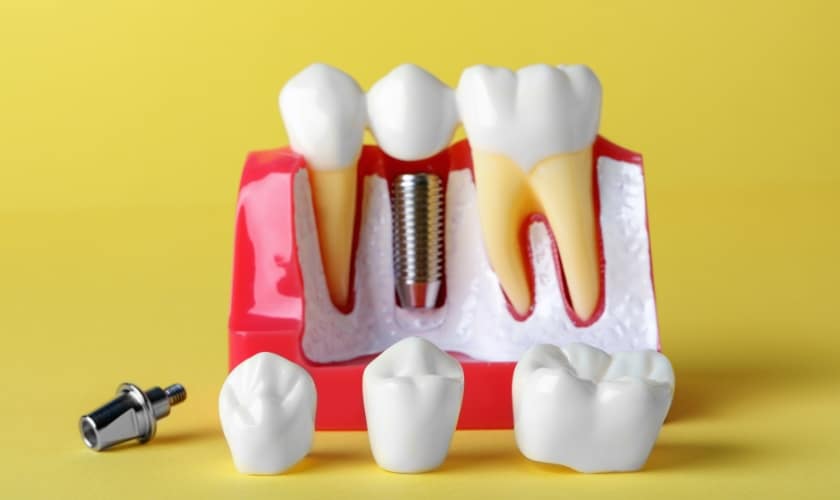
A healthy smile is not just about looking good; it’s about feeling good and maintaining overall well-being. Oral health plays a significant role in your overall health, and dental implant can be a game-changer. In this comprehensive guide, we’ll explore what dental implants are, how they contribute to your oral health, and the long-term benefits they offer beyond aesthetics.
Importance of Maintaining Oral Health
Before delving into dental implant, it’s crucial to understand the importance of maintaining good oral health. Oral health is not just about having a bright, white smile; it’s about ensuring the proper functioning of your teeth and gums, which can impact your ability to eat, speak, and live comfortably. Neglecting oral health can lead to various issues, including gum disease, tooth decay, and even more severe health problems in the long run.
Overview of Dental Implants and Their Role in Oral Health
What are Dental Implants?
Dental implants are an advanced and effective solution for replacing missing teeth. Unlike traditional dentures or bridges, dental implants are a permanent, long-lasting solution miming your teeth’ natural look and feel. They consist of three main components:
- Implant: This is a small titanium post surgically inserted into your jawbone. It serves as the root of your new tooth.
- Abutment: The abutment connects the implant to the crown. It’s a small connector that sits just above the gumline.
- Crown: The crown is the visible part of the dental implant, custom-designed to match your natural teeth in color and shape.
The Long-Term Advantages of Dental Implants
Dental implants, often hailed for their cosmetic benefits, offer far more than just a dazzling smile. They are a strategic, long-term investment in oral health that transcends aesthetics. This article explores the profound and enduring benefits of dental implants, spanning the restoration of proper chewing functionality, the prevention of bone loss and maintenance of facial structure, the prevention of adjacent teeth shifting, and the enhancement of speech and pronunciation. Moreover, we delve into the detrimental effects of missing teeth on oral health and how dental implants address these issues. Adherence to meticulous care and maintenance practices is crucial to fully reaping dental implants’ long-term rewards.
Restoration of Proper Chewing Functionality
Dental implants shine in their ability to resurrect the lost art of proper chewing. The absence of teeth can impede your ability to savor various foods. This, in turn, affects your nutrition and overall well-being. Dental implants are a gateway to unrestrained enjoyment of your favorite dishes, facilitating a balanced diet and bolstering your health.
Prevention of Bone Loss and Maintaining Facial Structure
An often-overlooked consequence of tooth loss is the gradual jawbone deterioration in the vacated area. Dental implants, however, intervene to halt this pernicious process by stimulating the bone akin to natural tooth roots. The preservation of bone density achieves more than just dental aesthetics; it plays a pivotal role in maintaining your facial structure, averting the sunken and aged appearance often associated with tooth loss.
Prevention of Adjacent Teeth Shifting
The domino effect of tooth loss involves neighboring teeth subtly shifting to occupy the void, ultimately leading to dental misalignment. Dental implants act as sentinels, guarding the integrity of your surrounding teeth by ensuring they remain in their rightful positions. This maintains the symmetry of your smile and diminishes the risk of future dental complications.
Improvement of Speech and Pronunciation
Missing teeth can cast a shadow on your speech and pronunciation. Dental implants become proficient substitutes for natural teeth, empowering you to articulate words confidently and clearly. Your speech is thus revitalized, and you can express yourself more distinctly.
Impact of Missing Teeth on Oral Health
The consequences of missing teeth extend beyond mere aesthetics and daily functionalities. These gaps in your dental structure pose a plethora of threats to oral health, including:
- Increased Risk of Gum Disease: The crevices created by missing teeth can serve as convenient hiding spots for food particles, promoting bacterial growth and increasing the risk of gum disease.
- Higher Susceptibility to Tooth Decay: Misaligned teeth are arduous to clean efficiently, rendering them more vulnerable to tooth decay.
- Altered Bite and Jaw Joint Issues: The absence of teeth can lead to an altered bite, potentially causing problems in the temporomandibular joint (TMJ) and, consequently, TMJ disorders.
How Dental Implants Contribute to Overall Oral Health
Dental implants emerge as stalwart allies in the battle against these oral health adversaries. They thwart gum disease and tooth decay by bridging the gaps and offering an easily maintained surface. Furthermore, they ensure the continuity of your bite, a fundamental prerequisite for proper jaw function and the prevention of TMJ-related complications.
Reduced Risk of Gum Disease and Tooth Decay
Dental implants create a seamless, fully functional structure without room for food debris to lodge between teeth. Consequently, the risk of gum disease and tooth decay is considerably reduced, thereby minimizing the need for extensive dental interventions in the future.
Maintenance and Care for Dental Implants
However, the long-term benefits of dental implants for oral health can only be fully actualized through rigorous care and maintenance. Here are some pivotal practices to follow:
- Importance of Good Oral Hygiene: The success of your dental implants hinges on meticulous oral hygiene. Regular brushing, flossing, and antimicrobial mouthwash are non-negotiable steps in maintaining the health of your mouth and preventing infections around the implant site.
- Regular Dental Check-Ups and Cleanings: Routine visits to your dentist are paramount for monitoring the condition of your dental implants. This proactive approach allows early detection of issues, ensuring the long-term success of your dental implants.
- Avoidance of Harmful Habits (Smoking, Teeth Grinding): Smoking poses a significant threat to the longevity of your dental implants as it heightens the risk of implant failure. Teeth grinding, or bruxism, can lead to excessive wear on the implant crown. It is, therefore, imperative to abstain from these detrimental habits to preserve your oral health.
Dental implants are a cosmetic indulgence and a substantial commitment to oral health. They resurrect proper chewing functionality, thwart bone loss, maintain facial structure, prevent adjacent teeth from shifting, and enhance speech and pronunciation. Missing teeth can usher in many oral health problems, but dental implants are a strategic shield against these threats. To harvest the enduring rewards of dental implants, one must adhere to diligent care and maintenance practices. Therefore, if you are contemplating dental implants, it is wise to consult a dental professional to determine the best course of action for your specific needs. Your oral health is a valuable investment; dental implants can be a pivotal step toward a healthier, happier you.
